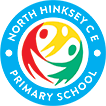{SECTION_MENU}
EYFS - Communication & Language
Educational Programme
The development of children’s spoken language underpins all seven areas of learning and development. Children’s back-and-forth interactions from an early age form the foundations for language and cognitive development. The number and quality of the conversations they have with adults and peers throughout the day in a language-rich environment is crucial. By commenting on what children are interested in or doing, and echoing back what they say with new vocabulary added, practitioners will build children's language effectively.
Reading frequently to children, and engaging them actively in stories, non-fiction, rhymes and poems, and then providing them with extensive opportunities to use and embed new words in a range of contexts, will give children the opportunity to thrive. Through conversation, story-telling and role play, where children share their ideas with support and modelling from their teacher, and sensitive questioning that invites them to elaborate, children become comfortable using a rich range of vocabulary and language structures.
Children in reception will be learning to:
- Understand how to listen carefully and why listening is important.
- Learn new vocabulary.
- Use new vocabulary through the day.
- Ask questions to find out more and to check they understand what has been said to them.
- Articulate their ideas and thoughts in well-formed sentences.
- Connect one idea or action to another using a range of connectives.
- Describe events in some detail.
- Use talk to help work out problems and organise thinking and activities, and to explain how things work and why they might happen.
- Develop social phrases.
- Engage in storytimes.
- Listen to and talk about stories to build familiarity and understanding.
- Retell the story, once they have developed a deep familiarity with the text, some as exact repetition and some in their own words.
- Use new vocabulary in different contexts.
- Listen carefully to rhymes and songs, paying attention to how they sound.
- Learn rhymes, poems and songs.
- Engage in non-fiction books.
- Listen to and talk about selected non-fiction to develop a deep familiarity with new knowledge and vocabulary.
 North Hinksey CE Primary
School
North Hinksey CE Primary
School